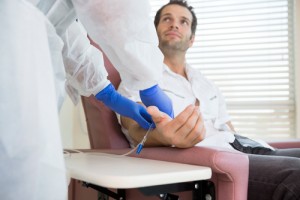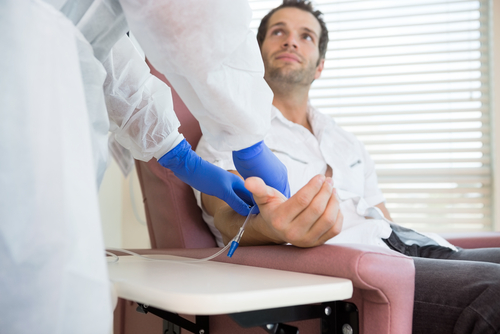 Promising data on hepatitis C virus (HCV) genotype 3 therapy was released by Biotron Ltd, an Australian drug development company, showing that treatment with its lead antiviral drug, BIT225, led to an effective cure of HCV 12 weeks after the end of treatment.
Promising data on hepatitis C virus (HCV) genotype 3 therapy was released by Biotron Ltd, an Australian drug development company, showing that treatment with its lead antiviral drug, BIT225, led to an effective cure of HCV 12 weeks after the end of treatment.
The study was an open label pilot study (BIT225-006) undertaken at a single trial site in Bangkok, Thailand, and included 8 patients co-infected with HIV and HCV G3 received HCV drugs, i.e. interferon and ribavirin (IFN/RBV), for 7 days before initiating the treatment with BIT225. The patients received 300 mg of BIT225 two times per day combined with the therapy IFN/RBV during 28 days. After that time, patients continued to take IFN/RBV until week 48, after which all treatment was stopped (as per standard treatment guidelines). In this study, the researchers sought to assess the safety and tolerability and as secondary objectives the pharmacokinetics and antiviral efficacy of BIT225. The endpoint of HCV treatment was considered when a sustained virologic response (SVR) was achieved. Sustained virologic response at week 12 (SVR12) is defined as an undetectable HCV RNA level 12 weeks after completion of treatment. This is considered a prediction of permanent clearance of the virus and, effectively, a cure. The findings of this study are an extension of previous data that showed that these patients had undetectable HCV at earlier stages during the treatment period.
In this trial, only five patients completed the full course of treatment, since 3 patients left the study during the first 12 weeks due to intolerance of the treatment with IFN/RBV. The remaining patients had undetectable levels of HCV from week 12 of dosing. Virus levels continued to be undetected at week 24 and at week 48, when the treatment finished. At week 60 — which was 12 weeks after stopping treatment — the patients still had undetectable levels of the virus (SVR). The SVR rate for IFN/RBV alone in HCV G3 patients in Thailand is 68.8%. No HCV was detected from week 12 onwards in 100% of the patients. The efficacy of BIT225 seems promising, although patient samples were very small. Importantly, it was shown that the rate of reduction in virus levels was accelerated after BIT225 was added at day 7 to the IFN/RBV treatment. The safety and pharmacokinetic data from the trial are being analyzed and reviews are in progress.
“These SVR12 data support the efficacy of BIT225 as a potential new therapy for HCV and, in particular, for this difficult to treat group of HIV/HCV co-infected patients who typically have more serious HCV infection and fewer treatment options,” said Dr. Michelle Miller, Biotron Managing Director in the press release from Biotron.
Previous clinical trials of BIT225 have focused on patients infected with the genotype 1 variant of the virus, which is the most common genotype in Western populations. In vitro assays have shown that BIT225 has pan-genotypic activity. The new data expands the Company’s clinical data portfolio to include genotype 3, which is endemic in Southeast Asia.
A three-month dosing Phase 2, placebo controlled, double-blinded trial of BIT225 in combination with IFN/RBV in HCV genotype 1 (n=30) and genotype 3 (n=30) patients is currently in progress. Preliminary results are expected before the end of 2014.
“Both HIV and HCV viruses present substantial challenges for treatment and represent multi-billion dollar markets. We look forward to progressing commercialization of BIT225 as a valuable new therapy that will work in combination with current and future treatment strategies,” concluded Dr. Miller.

